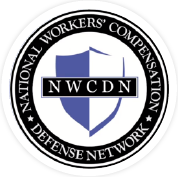Supreme Court Grants Stay of OSHA Vaccinate or Test Mandate; CMS Vaccinate or Test Mandate Allowed to Take Effect
On Thursday, January 13, 2022, the United States Supreme Court granted various states’ and industry groups’ applications to stay OSHA’s COVID-19 vaccine mandate pending further review. Technically, the Court has not yet even taken up the underlying case on its merits, let alone issued a final decision striking down the OSHA vaccine mandate, but the decision granting the stay likely amounts to the mandate’s death knell.
In a combined opinion addressing National Federation of Independent Businesses et al. v. Department of Labor, Occupational Safety and Health Administration et al. and Ohio et al. v. Department of Labor, Occupational Safety and Health Administration et al., a 6-3 majority of the Court found that the groups and states challenging the employment-related vaccine mandate were likely to succeed on the merits of the claim that OSHA lacks the legal authority to impose the broad public health mandate at issue. In its analysis, the Court began by noting that OSHA’s authority is limited to regulating “work-related dangers.” From there, the Court explained that “[a]lthough COVID-19 is a risk that occurs in many workplaces, it is not an occupational hazard in most.” Rather, the Court noted, the virus spreads essentially the same “at home, in schools, during sporting events, and everywhere else that people gather.” The Court described the risk as being “universal” and “no different from the day-to-day dangers that all face from crime, air pollution, or any number of communicable diseases.” It concluded that “[a]lthough Congress has indisputably given OSHA the power to regulate occupational dangers, it has not given that agency the power to regulate public health policy more broadly.” In the end, the majority viewed the rule as being more akin to regulation of public health policy than being tailored to an identifiable work-related risk. Viewed in that light, the Court concluded that OSHA lacked statutory authority to broadly mandate vaccinations in all workplaces and thus it granted a stay of OSHA’s rule.
What does this decision mean for employers in the Pacific Northwest? Oregon and Washington are “state plan” states, meaning that the states have their own state agencies and can promulgate their own occupational safety and health regulations under state law. The day after the Supreme Court’s decision issued with respect to the federal rule, Oregon OSHA confirmed it does not plan to move forward with its own vaccine mandate at this time. That said, a more limited vaccine mandate applicable to state executive branch employees, public educational employees, and public and private employees in the healthcare sector still applies. Washington has a similar (slightly broader) limited vaccine mandate already in place for employers in the education and healthcare sectors, as well as employers with employees who work on contracts for state agencies. Though it is unclear whether Washington’s DOSH may move forward with a broader mandate, that seems unlikely. Most state plan states, Washington included, have been following the federal litigation closely and have held back their own vaccine mandate rules pending the outcome of the challenge to the federal rule. As such, chances are that, like in Oregon, Washington will continue to put a broader emergency vaccine mandate rule on the back burner.
Does the Court’s decision with respect to the OSHA vaccine mandate relieve all employers of requiring vaccination of their employees? Not exactly. Other limited mandates may still apply. In addition to those limited mandates referenced above, a separate vaccinate or test mandate adopted by the Center for Medicare and Medicaid Services (CMS) was permitted to go into effect in a separate opinion by the U.S. Supreme Court issued on January 13. That rule applies to Medicare- and Medicaid-certified providers, their employees, and contractors.
And for employers with federal contracts, there is separate litigation winding its way through the system with respect to Executive Order 14042. That Executive Order would mandate vaccination of employees of federal contractors, subject to limited exceptions. A preliminary injunction issued in December by a Federal District Court Judge in Georgia which blocks application of the Executive Order nationwide remains in effect pending further review by the Eleventh Circuit Court of Appeals. Briefing is underway, with a further decision unlikely until February. Like with the OSHA mandate, these other mandates will continue to work their way through the court system.
If you have any questions about the recent Supreme Court decision or how vaccine mandates may impact your business, feel free to contact one of the attorneys at Cummins, Goodman, Denley & Vickers at (503) 476-8200.
©2022 Cummins, Goodman, Denley & Vickers, P.C. This material is provided for informational purposes only. It is not intended to constitute legal advice nor does it create a client-lawyer relationship between Cummins, Goodman et. al., and any recipient. Recipients should consult with counsel before taking any actions based on the information contained within this material.

